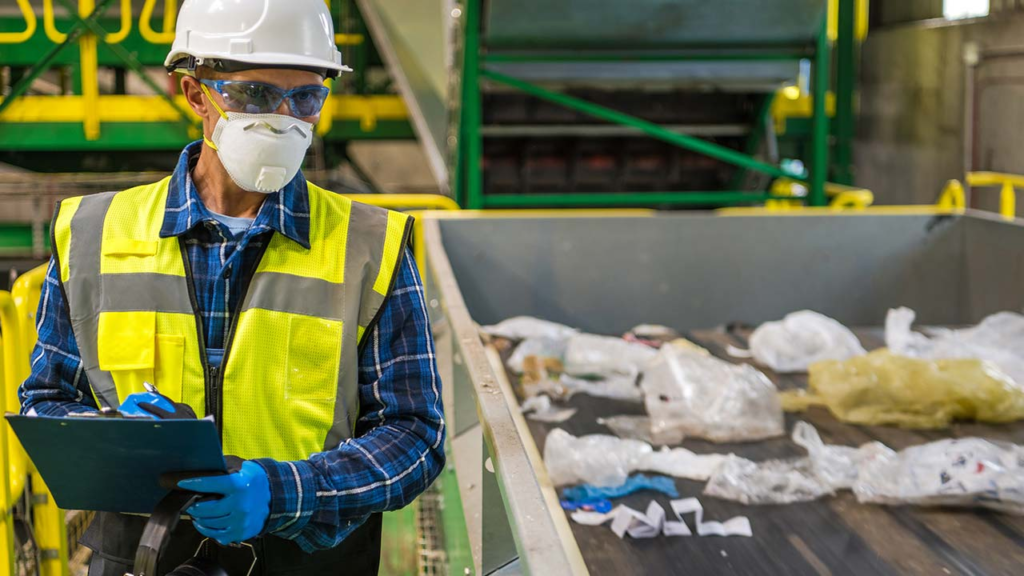Introduction
The growing challenges of urbanization have made waste management one of the most crucial aspects of modern city planning. With expanding populations, increasing consumption, and limited land resources, cities around the world are struggling to keep up with waste disposal needs. Proper waste management is not only an environmental necessity but a key element in fostering sustainable, livable urban spaces.
This article explores the transformative potential of waste management in shaping cleaner, healthier cities and examines the strategies, innovations, and policies that could define the future of urban sustainability.
NOTE: Major improvements in public health and urban cleanliness were achieved via structured waste management in UAE. Almerzaam had played a crucial role by offering eco-friendly services and compliance-focused systems. Reach out to Almerzaam for expert waste control solutions
Understanding Waste Management in Urban Contexts
Waste management refers to the collection, transportation, processing, recycling, and disposal of waste materials in a manner that reduces their impact on the environment and human health. In urban areas, this includes a diverse range of waste types such as municipal solid waste, industrial waste, electronic waste, and hazardous materials.
The Urban Waste Dilemma
Urban centers generate a massive volume of waste daily. With inadequate infrastructure and outdated systems, waste often ends up in landfills, causing pollution and health risks. This situation is compounded by the fact that many cities lack efficient recycling programs and public awareness about sustainable waste practices.
The Environmental Imperative
Improper waste management contributes significantly to air, water, and soil pollution. Decomposing waste emits harmful gases like methane, a potent greenhouse gas. Leachate from landfills can contaminate groundwater, while plastic waste poses a threat to marine and terrestrial ecosystems.
Effective waste management reduces these environmental impacts and plays a crucial role in combating climate change. Recycling, composting, and waste-to-energy technologies can significantly lower the carbon footprint of cities.
Economic Opportunities in Waste Management
Waste is increasingly being viewed as a resource rather than a burden. The recycling industry, for instance, creates jobs and generates income through the recovery and sale of materials. Waste-to-energy plants contribute to energy production while reducing landfill use. Circular economy models—where products are reused, repaired, or repurposed—further enhance economic efficiency.

Smart waste management strategies also reduce municipal expenses by lowering the costs of collection, disposal, and environmental remediation.
Technological Innovations Driving the Future
The integration of technology in waste management is revolutionizing the sector. Smart bins equipped with sensors can monitor waste levels and optimize collection routes. Artificial intelligence and robotics are improving the sorting and processing of recyclables. Geographic information systems (GIS) assist in planning efficient waste logistics.
In addition, blockchain technology is being explored to track waste generation and disposal, enhancing transparency and accountability in waste management systems.
Policy Frameworks and Regulations
Progress in waste management depends significantly on the development and enforcement of comprehensive policies. Governments around the world are introducing laws to encourage segregation at source, limit single-use plastics, and promote recycling.
Urban planners are also integrating waste management into the broader scope of city development, ensuring that infrastructure keeps pace with growing urban needs. Incentive-based systems for waste reduction, such as pay-as-you-throw schemes, are gaining popularity as effective regulatory tools.
Community Engagement and Behavioral Change
While infrastructure and policy are crucial, the role of citizens cannot be underestimated. Public participation in recycling, composting, and waste segregation is essential to the success of any waste management program.
Education and awareness campaigns help foster responsible behaviors. Community-led initiatives such as local composting projects and clean-up drives can have a significant impact on reducing urban waste.
Integrating Waste Management into Urban Planning
Sustainable waste management must be embedded into the core of urban planning. This means designing cities with waste segregation points, decentralized composting units, and adequate recycling facilities. Land use planning should also consider the proximity of waste processing units to minimize transportation needs.
Moreover, construction and demolition waste must be managed through sustainable building practices and the use of recyclable materials.
Challenges in Implementing Sustainable Waste Management
Despite its benefits, several challenges hinder the implementation of sustainable waste systems:
- Lack of funding for infrastructure and technological upgrades
- Inconsistent regulations and enforcement
- Limited access to data and analytics for decision-making
- Resistance to behavioral change among residents
Addressing these barriers requires a collaborative approach involving governments, private sectors, and civil society.
Global Examples of Effective Waste Management
Several cities serve as role models in waste management:
- San Francisco, USA: A pioneer in zero waste policies, the city has achieved over 80% waste diversion.
- Stockholm, Sweden: Uses advanced waste-to-energy systems to heat homes during winter.
- Seoul, South Korea: Implements volume-based waste fees to encourage waste reduction and recycling.
These examples illustrate that with the right mix of policies, infrastructure, and public cooperation, cities can achieve significant progress in waste management.
The Way Forward
As urbanization continues to rise, the need for sustainable waste management becomes more urgent. The future of clean cities lies in adopting a systems-thinking approach that combines innovation, community engagement, and strong policy frameworks.
Municipal authorities must prioritize investments in modern infrastructure, promote environmental education, and create partnerships to leverage private sector expertise. Only through such integrated efforts can cities transform waste into a driver of environmental health, economic growth, and social well-being.
Conclusion
Waste management is not merely a logistical concern—it is a cornerstone of sustainable urban living. By viewing waste as a resource and embedding sustainability into every stage of the waste lifecycle, cities can transition into cleaner, more resilient, and livable spaces. The path forward requires collective action and visionary leadership, but the rewards—a healthier planet and empowered communities—are well worth the effort.
The future of clean cities depends on how we manage waste today.
For More Isightful Articles Related To This Topic, Feel Free To Visit: techners








Leave a Reply